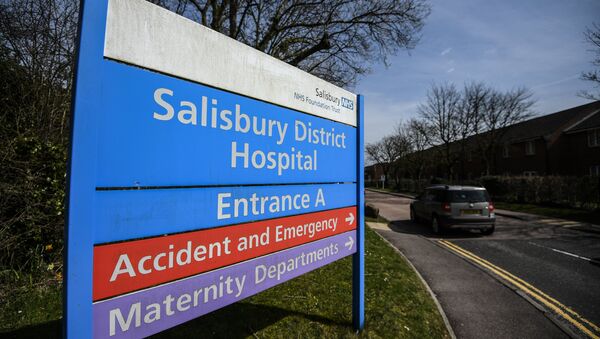"The precursor of BZ that is referred to in the public statements, commonly known as 3Q, was contained in the control sample prepared by the OPCW Lab in accordance with the existing quality control procedures. Otherwise it has nothing to do with the samples collected by the OPCW Team in Salisbury. This chemical was reported back to the OPCW by the two designated labs and the findings are duly reflected in the report," head of the Organization for the Prohibition of Chemical Weapons (OPCW) Ahmet Uzumcu said.
The OPCW research results have confirmed British experts' analysis, the UK's Permanent Representative at the Organization for the Prohibition of Chemical Weapons Peter Wilson stated, speaking at the OPCW Executive Council Meeting.
"On April 13, the Russian Federation handed over to the UK a list with questions under Article 9 of the Convention on the Prohibition of Chemical Weapons. We will respond as soon as possible (this will happen) within 10 days, as established by the Convention (on the prohibition of chemical weapons)," Wilson said.
According to the UK Ambassador to the OPCW, four OPCW-designated laboratories did not find the substance BZ in any of the samples collected in Salisbury. Still, London and the OPCW research haven't determined the nerve agent country of origin and production location, the UK Envoy noted.
Today’s special #OPCW Executive Council session discusses the OPCW’s report which confirms 🇬🇧 analysis that a Novichok nerve agent was used in #Salisbury. You will be able to read public statements from OPCW members on the website ⬇️ https://t.co/l7EYHRNpaN
— UK Delegation OPCW (@UK_OPCW) April 18, 2018
— UK Delegation OPCW (@UK_OPCW) April 18, 2018
"Russia's reckless behavior" violates the ban on chemical arms, according to Wilson.
'We will continue to call out Russia's reckless and indiscriminate behaviour when it violates the CWC, and when it threatens global security.' @PeterWilson to #OPCW ECM 59
— UK Delegation OPCW (@UK_OPCW) April 18, 2018
The OPCW Executive Council meets today to discuss the independent analysis of the chemical substance used in the Salisbury attack.
— Foreign Office 🇬🇧 (@foreignoffice) April 18, 2018
The report confirms the UK's findings: pic.twitter.com/mhdvag8rDX
Dels welcome highly professional impartial @OPCW report confirming UK finding of nerve agent used in #Skripal attack pic.twitter.com/FKnqWS7Bc9
— Sabine Nolke (@SabineNolke) April 18, 2018
READ MORE: Nerve Agent Used to Poison Skripals Was Delivered ‘in a Liquid Form' — Reports
On April 14, Russian Foreign Minister Sergei Lavrov said that a Swiss laboratory had detected traces of BZ, which has been used by the US and UK armies, in samples sent by the OPCW experts investigating the poisoning of Skripal.
In March, former Russian agent Sergei Skripal and his daughter Yulia were found unconscious on a bench at a shopping center in the UK city of Salisbury.
The UK has accused Moscow of organizing the attack with what UK experts claimed was the A-234 nerve agent. Russia has refuted having any role in the poisoning, pointing to the lack of evidence provided by London to substantiate its accusations.



